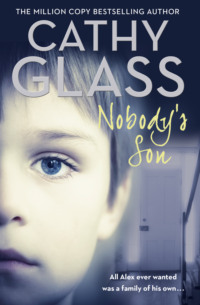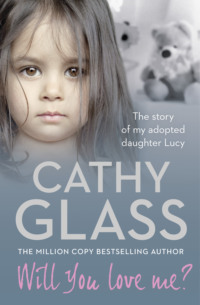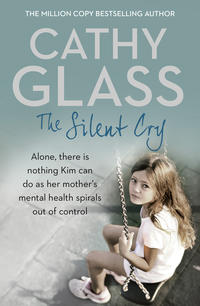
Полная версия
The Child Bride
‘What happened, love?’ I asked gently.
‘I went home and rang the doorbell,’ she said, with a small sob. ‘Mum took a long time to answer. As I waited I could hear my little brothers and sisters in the hall calling my name. They sounded so excited to be seeing me. I couldn’t wait to see them too. But then it all went quiet and I couldn’t hear them. When Mum answered the door she was very angry. She pulled me inside and began calling me horrible names. She told me to get my things quickly and never set foot in the house again.’
Zeena took a breath before continuing. ‘I went upstairs, but I couldn’t see my brothers and sisters anywhere. Usually they’re all over the house, running and playing, but there was no sign of them. Then I heard their voices coming from the front bedroom. The door was shut and I tried to open it, but it was locked. Mum had locked them in and had the key. She’d stayed downstairs and I called down to her and asked her why they were shut in the bedroom. She said it was to keep them safe from me. She said if they got close they might catch my evil.’ Zeena began crying again and I put my arm around her and held her close until she was calm enough to continue.
‘I spoke to them through the bedroom door,’ she said. ‘They thought it was a game to begin with and were laughing, but when the little ones realized they couldn’t get out and see me they started crying. Mum heard and yelled that I had five minutes to get my things and get out of the house or she’d call my father. I grabbed what I could from the bedroom and fled the house. I know I might never see my brothers and sisters again,’ she cried. ‘I have no family. My parents have disowned me. I should have stayed quiet and not said anything.’
Her tears fell and I held her hand. And again I thought what could she have done that was so horrendous for her mother to call her evil and stop her from seeing her little brothers and sisters? But now wasn’t the right time to ask; she was too upset. I comforted her and tried to offer some reassurance. ‘Zeena, I’ve been fostering for a very long time,’ I said. ‘In my experience, parents are often angry when their child or children first go into care. They can say hurtful things that they later regret. I think if you allow your mother time, she may feel differently. Your brothers and sisters will be missing you; they’re bound to ask for you.’
‘You don’t understand,’ she said. ‘In my family everyone does as my father says. If he tells my mother that I am evil and my brothers and sisters mustn’t have anything to do with me, then that’s that.’
‘Let’s wait and see,’ I said, feeling that perhaps Zeena was so upset that she was overstating the situation. ‘But we do need to tell Tara what’s happened. When she visits your parents she can talk to them. Social workers are used to dealing with difficult family matters. I’m sure she’ll know what to say so you can see your family.’
She shrugged despondently. ‘I suppose it’s worth a try,’ she said. ‘Shall I phone her now?’
‘If you wish, or I can?’
‘I’ll tell her,’ Zeena said.
‘If her voicemail is on, leave a message and ask her to call back,’ I said.
At Zeena’s age and with her level of maturity she could reasonably telephone her social worker if she wished. When younger children or those with learning difficulties were in foster care then it was usually the carer who made the telephone calls. However, as Zeena took another tissue from the box and blew her nose the landline rang. Paula, aware I was busy with Zeena, answered it in the hall.
‘Mum, it’s for you,’ she called.
‘Who is it?’ I asked.
‘A police lady.’
‘Thank you. I’ll take it in here.’
Zeena looked at me anxiously as I picked up the handset on the corner table.
‘It’s nothing to worry about,’ I said. ‘It’ll be the child protection officer – Tara said she would phone.’ Then I said into the receiver, ‘Hello, Cathy speaking.’
‘Hello, Cathy. It’s DI Norma Jones, child protection. I believe you have Zeena P— staying with you.’
‘Yes. She’s with me now.’
‘Can I speak to her, please?’
‘Yes, of course.’
I held the phone out to Zeena, but she shook her head and looked even more worried. ‘You talk to her, please,’ she said quietly.
I returned the phone to my ear. ‘She’s a bit upset at present,’ I said. ‘Can I give her a message?’
‘I need to make an appointment to see her as soon as possible. Can I visit you tomorrow after school? About five o’clock?’
‘Yes. That’s fine,’ I said. ‘Just a moment.’ I looked at Zeena, who was now mouthing something.
‘What, love?’ I asked her.
‘Is she Asian?’ Zeena whispered.
I can’t ask that, I thought, but then given Zeena’s concerns about the Asian network I thought I had to. ‘Sorry,’ I said, ‘but Zeena wants to know if you’re Asian?’
‘No. I’m white British,’ she said, easily. ‘Please tell her there is nothing to worry about and I’m aware of her concerns. But I will need to interview her about the allegations she’s made.’
I repeated this to Zeena and she gave a small, anxious nod.
‘All right,’ I said. ‘We’ll see you tomorrow, at five. You’ve got my address?’
‘Yes, and Zeena has my mobile number. Tell her to phone me if she’s worried at all.’
‘I will,’ I said.
We said goodbye and I repeated what Norma had said to Zeena. I also told her that while I hadn’t personally met this police officer, all the others I’d worked with had been very nice and were specially trained and highly sensitive to children’s feelings, so to try not to worry.
I then reminded Zeena that we had to telephone Tara.
‘Can you do it, please?’ she said, now clearly overwhelmed.
I dialled Tara’s number but it went through to her voicemail, so I left a message asking her to phone back when she was free. When a child first comes into care there are always a lot of appointments and telephone calls, and then it usually calms down a little.
Paula appeared from the front room carrying printed copies of her CV and covering letter. ‘Can you check them, please, Mum?’ she asked.
‘Of course, love.’ Zeena stayed on the sofa as I read through Paula’s application. ‘It’s good,’ I said. ‘Well done.’
‘I’ll put it in the post on the way to school tomorrow,’ she said. Then, looking at Zeena and seeing how dejected she was, she asked her: ‘Would you like some help with your unpacking?’
Zeena’s little face brightened. It was so sad and touching. ‘Yes, please,’ she said politely. ‘That’s very kind of you. You’re all being so nice to me. I don’t deserve it.’ Her eyes filled, as did Paula’s.
‘Of course you deserve it,’ I said. ‘You’re a lovely girl, and don’t ever forget that.’
While I made dinner, Paula helped Zeena unpack the laundry bag she’d brought from home. They also put the first case – with all the beaded outfits – out of the way under her bed. Lucy arrived home and, saying hi to me, went upstairs and joined Paula and Zeena in her room. I could hear them talking and then laughing and all getting along. It was just what Zeena needed, I thought. I also thought that Paula and Lucy were appreciating Zeena’s company. We often fostered much younger children, many with challenging behaviour, which meant Lucy’s and Paula’s roles and the way they had to relate to the children were very different. Now they could all get along as friends and equals, and it was lovely to hear them.
Tara returned my phone call as I was making dinner and I took the call in the kitchen. I told her about Zeena’s visit home. She was shocked and said she’d raise it with Zeena’s parents when she saw them – she still hadn’t managed to speak to them yet. I also told her that Norma had telephoned and was coming to see Zeena the following day at five. Tara thanked me and then asked what Zeena was doing now.
‘She’s with Paula and Lucy,’ I said. ‘They helped her unpack and now they are chatting.’
‘OK. I won’t disturb her. Tell her I phoned, please.’
‘I will.’
I hung up and went upstairs. Zeena’s bedroom door was open and the three girls were sitting on her bed, chatting. Zeena had changed out of her school uniform into a pair of jeans and a long shirt she’d brought from home. She looked more relaxed. I told her that Tara had telephoned and what she’d said.
‘Thank you,’ she said politely.
I smiled and came out.
The four of us ate together and then the girls disappeared back upstairs, this time to Paula’s bedroom, where they continued chatting and laughing. I took the opportunity to write up my log notes and also put the finishing touches to the foster-carer training I was presenting on Monday. Adrian came in at eight, showered, ate and said he was going out to meet ‘a friend’. This was happening more frequently recently and judging from the amount of aftershave and body spray he used in the bathroom, I guessed he had a new girlfriend. Adrian was a private person and I knew he would bring her home to meet us when he felt the time was right.
At nine o’clock I went upstairs to Paula’s room where the girls were still gathered and suggested that as everyone had to be up in the morning they’d better start taking turns in the bathroom. ‘You’re the youngest, so you can go first,’ Lucy said jokingly to Zeena.
‘That’s fine with me,’ Zeena said lightly. ‘It’ll be a treat. I’m usually last at home. I have to bath the little ones first and get them into bed.’
‘Not all of them? Every night?’ Lucy asked.
Zeena nodded and went to fetch her wash things from her room before going to the bathroom.
‘She’s treated like a slave at home!’ Lucy said, annoyed, once Zeena was in the bathroom and couldn’t hear.
‘I think she’s expected to do too much,’ I said. ‘I’ve raised it with Tara. Has Zeena said anything to you about abuse?’ I asked them both.
‘Not really,’ Paula said. ‘Just what her life is like at home and that she’s missing her brothers and sisters.’
‘I know. Tara’s hoping to arrange some contact soon. The child protection police officer is coming at five tomorrow,’ I reminded them, so that they wouldn’t be surprised when they walked in and found a stranger in the house.
When I went into Zeena’s room to say goodnight she was talking on her mobile. She cut the call as soon as I entered and I thought she looked almost guilty.
‘Is everything all right?’ I asked her.
‘Yes. It was just a friend,’ she said, not meeting my eyes.
Like many teenagers, Zeena spent a lot of time on her phone, texting, and sometimes she would leave the room to answer a call. However, I was slightly surprised to see a second mobile phone lying on her bed. ‘Lucky you. Two phones?’ I said, nonchalantly.
‘I don’t use that one, it doesn’t work properly,’ she said, and quickly pushed it under the pillow.
I thought no more about this at the time. It was later that I learned the horrific significance of that second phone.
DI Norma Jones’s visit the following day didn’t go well. Despite her being a very pleasant plain-clothed officer with a reassuring, confident manner, Zeena wouldn’t talk to her. When she arrived she asked to see Zeena alone, so I left the two of them in the living room and busied myself in the kitchen. When a younger child had to see a child protection officer I was usually asked to stay to help reassure them. Fifteen minutes later Norma came to find me. ‘Zeena isn’t able to tell me anything at present, so I’ll be going,’ she said. I could see she was disappointed.
‘Is Zeena upset?’ I asked.
‘No. But she won’t give me any details of her abuse or abuser, so there is very little I can do at present. I’ve done all I can to try to reassure her but she’s been scared into silence. We’ll keep the file open and hope that she’ll be able to tell me in time. She has my telephone number, but here’s my card if you need me.’
I took the business card, which had the police insignia in one corner and Norma’s rank, name and contact details beneath. ‘Thank you,’ I said. ‘I’m sorry you’ve had a wasted trip.’
‘It’s frustrating,’ she admitted. ‘I’m a hundred per cent certain she’s been badly abused, but with no evidence I can’t proceed. Tara told me about the run-in she had with her mother last night. I’ll be seeing both her parents soon. I take it Zeena hasn’t disclosed anything to you?’
‘No, I would have told Tara,’ I said. ‘Zeena talks about her family and all the work she’s expected to do, but that’s all.’
‘All right,’ Norma said, with a small sigh. ‘When she’s been here a while and feels safer she may start to open up.’
‘I hope so,’ I said.
I saw her out, and then checked on Zeena, who was still in the living room. She asked if it was all right if she went up to see Paula.
‘Yes, of course,’ I said.
Zeena looked sad and worried but wasn’t visibly upset. Like Norma, I, too, hoped that once Zeena felt more settled with me she would be able to talk.
I finished making the dinner and then called the girls. Adrian would eat later again, when he returned home from work. Zeena was quiet over dinner, but after we’d finished she went into the front room and to the computer with Paula and Lucy, as Lucy wanted to show them a website someone had recommended to her. Before long I could hear them all laughing and I went in to have a look at what was causing all the fun. It was a fashion website where a visitor could upload an image of themselves and then ‘try on’ different outfits. Lucy had uploaded a photograph of herself, where she was pulling a silly face and was now ‘trying on’ different designer outfits in various sizes. It was funny, and Zeena was laughing like the rest of us. Her ability to ‘switch off’ from the trauma she’d suffered was something I’d seen before in children I’d fostered who’d been badly abused. In order to function in everyday life, their brains compartmentalize their bad experiences and hive it off. It’s not healthy, and eventually the horror of what has happened comes to the surface, often with catastrophic results.
Chapter Six
Dreadful Feeling
Zeena didn’t want to go out at all over the weekend, despite having her pocket money and allowance. She said that as most people didn’t work at the weekend they were likely to be out and about shopping, so she felt safer staying at home with me. She asked Paula if she would buy her more phone credit when she went out, and gave her the money from the allowance that I’d given to her.
I would normally have gone out at the weekend, taking any child I was fostering with me, but as Zeena hadn’t been with us for long and there were concerns about her safety I stayed in with her. The weather turned warmer so I did some gardening. Adrian, Paula and Lucy were in and out as usual, making the most of their time off. I didn’t expect them to change their plans for Zeena and neither did she. ‘Have a good time and thanks for getting my phone credit,’ Zeena said to Paula when she went shopping with her friends on Saturday afternoon.
‘You’re welcome,’ Paula said.
‘I hope you have a nice evening,’ Zeena called to Lucy when she went out all dressed up on both Saturday and Sunday evening.
‘Thank you,’ Lucy returned, slamming the front door behind her, late as usual.
Lucy’s, Adrian’s and Paula’s lifestyles were very different to Zeena’s, and I wondered if she resented the freedom my children enjoyed compared with the servitude of her life at home, but Zeena was such an unassuming and compliant child, I doubt it crossed her mind. She was also very humble and self-effacing, and I thought she could easily be taken advantage of. She spent most of Saturday trying to please me and kept asking me if there was anything she could do to help. I found her a few little jobs and then suggested she might like to cook – perhaps the chapris she’d mentioned? She liked the idea and I checked in the cupboard for the ingredients she needed and then texted Paula to ask her to buy what we didn’t have. On Sunday morning delicious smells came from the kitchen as Zeena cooked the chapris (savoury pancakes), leaving out the chilli from ours as we weren’t used to highly spiced food first thing in the morning. They were delicious and we all agreed we’d be happy if this became a regular occurrence. Zeena was pleased.
By the end of the weekend Zeena appeared to be more relaxed and had stopped asking me each and every time she wanted to do something, like have a glass of water or go to her room. However, despite her appearing to feel more at ease, she still hadn’t said anything of her abuse or suffering or the reason she’d asked to come into care, and I hadn’t brought up the subject. It was early days yet, and my role was to support and look after her. If and when she wanted to confide in me, as I hoped she would, then I would be ready to listen, but I wouldn’t be pushing her to do so. She knew she could talk to me any time and could also telephone Norma or Tara. Zeena was coping in her own way, but I did wonder how she could concentrate on her school lessons with so much on her mind. She’d had some homework to do over the weekend and from what I’ve seen she was achieving a high standard, despite everything. Perhaps school was a safe haven for her, as it was for many children with difficult home lives.
Having stayed in all weekend, security hadn’t been an issue, but on Monday morning I again asked Zeena if I could take her to school in the car. She said it wasn’t necessary, and that she would phone if she needed help, which I had to accept. I went with her to the front gate to say goodbye and also to check there were no strangers in the street. I reminded her to text me when she arrived at school, and before she left she gave me a hug and a kiss and thanked me for a nice weekend – although in truth we hadn’t really done anything. I watched her walk up the street until she was out of sight and then I returned indoors. If I entertained any thoughts that Zeena was exaggerating the threat to her safety, they vanished later that morning.
Dressed smartly in a blouse and skirt, I left the house twenty minutes later to drive to the council offices where the foster-carer training I was delivering was being held. Although the training wasn’t due to start until ten o’clock I wanted to arrive early to set up the PowerPoint presentation and generally organize myself with the handouts. Zeena texted confirming she’d arrived safely at school and I was pleased she’d remembered to let me know.
Carers began arriving at 9.45 a.m. and I greeted each of them as they entered, ticking their names off the registration sheet. When I’d fostered for Homefinders I’d been with them for so long that I knew most of the carers, but since changing to the local authority there were many I didn’t know. Not all carers attended every training session as the groups were limited in size, and sessions were repeated so that carers could choose a date that suited them and met their training needs. Ongoing training is now part of fostering and compulsory in the UK.
The carers, like students in a classroom, filled the chairs at the back of the room first, and began chatting to those they knew. A middle-aged Asian lady dressed attractively in a sari came in and I smiled at her, introduced myself and then ticked her name off the list. She sat alone at one of the front tables and watched me as I sorted through my paperwork. I smiled at her again and then she beckoned me over as though wanting to say something. I leaned forward so I was within earshot, and she said quietly, ‘Are you fostering Zeena?’
I drew back slightly and tried to hide my shock, but my mouth had gone dry and my heart was drumming loudly. ‘Pardon?’ I said, pretending I hadn’t heard.
‘Are you fostering Zeena P—?’ she said again. ‘She’s fourteen and has run away from home. Her parents are sick with worry. She needs to contact them and go home.’
‘No, sorry. I can’t help you,’ I said, forcing a small smile.
I picked up my notes and pretended to read them again as I fought to regain my composure. How on earth did she know Zeena was with me? And what was that about Zeena running away and not being in touch? Zeena had seen her mother on Friday and she’d been aggressive and rude to her. Yet clearly we were talking about the same child.
The last of the carers came in and I closed the door and tried to rein in my thoughts. Picking up my notes, I began by welcoming everyone to the training, and then went through what’s referred to as ‘housekeeping’, which includes where the fire exits are, a reminder to turn off mobiles, confidentiality and a timetable for the day. As I spoke I avoided meeting the woman’s gaze, although I felt her eyes on me. My heart was still racing and my hands felt clammy, but once I began the PowerPoint presentation and everyone was concentrating on the screen it became a little easier. I stood to the side of the room and allowed my gaze to wander as I talked. Who was the woman and how did she know Zeena? Was she a relative, a member of her extended family and part of the Asian network Zeena had spoken of? I had no idea, but I needed to find out. This could be a huge threat to Zeena’s security.
Somehow I got through the next two hours and then at noon I broke the training for lunch. I reminded everyone that they needed to return by one o’clock for the afternoon session, and slipping the registration list into my bag I left the room. I went upstairs to where the social workers had their desks. It was a large open-plan office and I looked around for Edith, my supervising social worker (sometimes called a link worker), but I couldn’t see her. I saw another social worker I knew and she looked over and smiled. I went to her desk. ‘I’m looking for Edith or Tara,’ I said.
‘Edith has gone on leave, but Tara should be around somewhere,’ she said.
She, too, scanned the room and at that moment the double doors swung open and Tara came in, carrying a stack of folders.
‘Thank you,’ I said, and went over.
‘Hi. What are you doing here?’ Tara said, greeting me with a smile.
‘I’m running some training today,’ I said. ‘But I need to ask you something.’ I took the registration list from my bag. ‘This lady, Mrs Parvin –’ I said, pointing to her name on the sheet. ‘Could she know I’m looking after Zeena?’
‘She certainly shouldn’t,’ Tara said, shocked.
I explained what had happened.
‘I’ll see her supervising social worker straight away and find out what’s going on,’ Tara said. ‘Everyone here who’s working on Zeena’s case knows her whereabouts are to be kept secret. Is Zeena at school?’
‘Yes.’
‘Norma telephoned me this morning and said Zeena wasn’t able to tell her anything on Friday,’ Tara said.
‘That’s right. Norma said she’d been scared into not telling, and she hasn’t said anything to me either.’
Tara nodded. ‘How was Zeena over the weekend?’
‘She felt safer staying in, but we had a pleasant weekend.’ I gave her a brief résumé of our weekend.
‘And Zeena doesn’t need anything?’
‘No. I’ve asked her.’
‘OK. Let me find out what’s going on with Mrs Parvin and I’ll get back to you.’
‘Thank you.’
I left the office and went up to the canteen on the top floor. I bought a sandwich and a drink and joined some of the other carers at a table. We chatted as we ate. Mrs Parvin wasn’t in the canteen, but not all the carers were; some preferred to go out for lunch – to one of the local cafés. Once I’d finished eating I returned to the training room to prepare for the afternoon session, which was going to include role-playing situations that involved challenging behaviour. I pushed the tables and chairs to the edge of the room to make space in the middle. The carers returned and Mrs Parvin sat with two others. I began the session and it went well; role playing is a fun way of getting a message across. As we discussed the situations that we’d acted out involving challenging behaviour I was able to meet Mrs Parvin’s gaze, but there was nothing to be read there. At 3.45 p.m. I began winding up the session by going over what we’d covered, and then I distributed the handouts. As I did I saw Tara appear outside the glass-panelled door. She motioned that she’d wait and speak to me at the end. I concluded by thanking everyone for coming and said their certificates would be posted to them, then I opened the door for Tara to come in.









